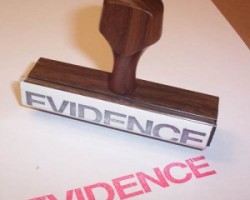
COMING TO YOU LIVE DIRECTLY FROM THE DUBIN LAW OFFICES AT HARBOR COURT, DOWNTOWN HONOLULU, HAWAII
LISTEN TO KHVH-AM (830 ON THE AM RADIO DIAL)
ALSO AVAILABLE ON KHVH-AM ON THE iHEART APP ON THE INTERNET
.
Sunday – August 26, 2018
DUE TO HURRICANE LANE, WE ARE REBROADCASTING THIS SUNDAY THE FOLLOWING SHOW AS YOUR CO-HOSTS AND PRODUCTION STAFF TAKE SHELTER:
It’s the Rules of Evidence Stupid: 25 Ways in Which Foreclosure Attorneys Are Knowingly Committing Fraud on Our State and Federal Courts (Rebroadcast from June 14, 2015)
.
———————
Not very long ago lenders filing foreclosure actions merely went into court nationwide reciting self-serving statements that a borrower was behind in mortgage payments, offering into evidence virtually no original supporting documentation, not even a loan payment accounting known as the “loan general ledger.”
Notwithstanding whatever evidentiary challenges borrowers might have made previously, unlike in other areas of American Law, foreclosure judges typically would merely take a foreclosing plaintiff’s printed word for it.
It was only, for instance, as late as 2001 that Hawaii Courts were instructed by the Hawaii Supreme Court to require that the loan general ledger in order to prove a “default” be submitted into evidence before a summary judgment could be entered.
And it was only more recently in 2017 that the Hawaii Supreme Court held that a foreclosing mortgagee must prove its “standing at inception” to foreclose, producing evidence of the possession of and right to enforce the underlying promissory note at the time the foreclosure lawsuit was first filed.
These evidentiary requirements in one form or another, in Hawaii enforced to the extent of reversing summary judgments where supported by inadmissible hearsay declarations of loan servicers, are now becoming commonplace in almost every State, but questions still remain concerning what level of proof on the part of a foreclosing mortgagee is necessary.
Unfortunately, in many state foreclosure courts such evidentiary requirements are still nonsensically considered satisfied where loan servicers merely attest to the foreclosing plaintiff having had possession of the underlying note at the time suit was filed and that their representatives are generally familiar with all of the records of prior loan servicers, even where there have been a succession of prior loan servicers, and even, for instance, regarding the service of default notices years earlier by unnamed others, another usually missing threshold evidentiary requirement for foreclosing.
Such testimony as “I saw the supporting documents back at the office” or “I am totally familiar with how Ioan servicers generally handle their books and records (called “boarding”) is inadmissible hearsay unless supported by evidence based on personal knowledge.
The Foreclosure Hour took our listeners in June 2015 inside a courtroom in Kona, Hawaii, where one foreclosure judge, Judge Ibarra, now retired, years before it became popular to require evidentiary support in the form of personal knowledge for securing a foreclosure decree displayed considerable foresight in refusing to accept mere allegations from otherwise polished foreclosure attorneys, requiring instead supporting proof, creating the now famous simple inquisitive admonition: ‘How does he knew?”, referring to loan servicer hearsay declarations.
Today, we rebroadcast that June 2015 show, as timely as ever, suggesting that today borrowers facing foreclosure as well as judges presiding over foreclosure cases need to confront foreclosing plaintiffs with similar challenges and demanding greater evidentiary detail.
For instance, today foreclosure plaintiffs must prove a payment default and standing to foreclose.
Don’t let your pretender lender merely submit an affidavit simply swearing that “here is a copy of the default notice” and here is a copy of the “original” of the promissory note entitling it to foreclosure.
Regarding the default notice, for instance, foreclosing mortgagees must prove that it was actually sent.
If accompanied by no signed return receipt requested, which is usually the case, courts should require an affidavit from whoever claims to have sent out the default notice, or computer or other evidence that it was created on the date it bears.
Remember, you can defeat summary judgment with your declaration that you never received a default notice and had you, the copy presented by the foreclosing mortgagee is in any event defective as it includes a demand for unexplained amounts in addition to claimed monthly arrearages and late fees.
Next, regarding the standing issue, demand to see how the foreclosing mortgagee supposedly came to possess a bearer note, for instance, asking for proof of payment for an assignment of the mortgage debt, including banking records and copies of transmittal documents. And hire an expert such as Dr. Kelley (with us on past shows) to scientifically evaluate the so-called “original’ note.
If a lost note affidavit is submitted to the court, seek to enforce the UCC evidentiary requirement in most jurisdictions that still an affidavit is required signed by the person claiming to have possessed and lost the original note.
Go to Court armed with your jurisdiction’s “Rules of Evidence” in hand and read the applicable Rules to your Judge with confidence.
Listen to what happened in one Kona Courtroom rebroadcast on today’s show, accompanied by our review all of the 25 ways in which foreclosing attorneys have similarly been attempting to defraud our courts, transforming them too often into collection agencies for crooks, ashamedly with the aid of the Bar.
And remember: “It’s the Rules of Evidence Stupid” as one of the best ways to defeat foreclosure.
Gary Dubin
.
CALL IN AT (808) 521-8383 OR TOLL FREE (888) 565-8383
Have your questions answered on the air.
Submit questions to info@foreclosurehour.com
The Foreclosure Hour is a public service of the Dubin Law Offices
Past Broadcasts
EVERY SUNDAY
3:00 PM HAWAII
6:00 PM PACIFIC
9:00 PM EASTERN
ON KHVH-AM
(830 ON THE DIAL)
AND ON
iHEART RADIO
© 2010-19 FORECLOSURE FRAUD | by DinSFLA. All rights reserved.



